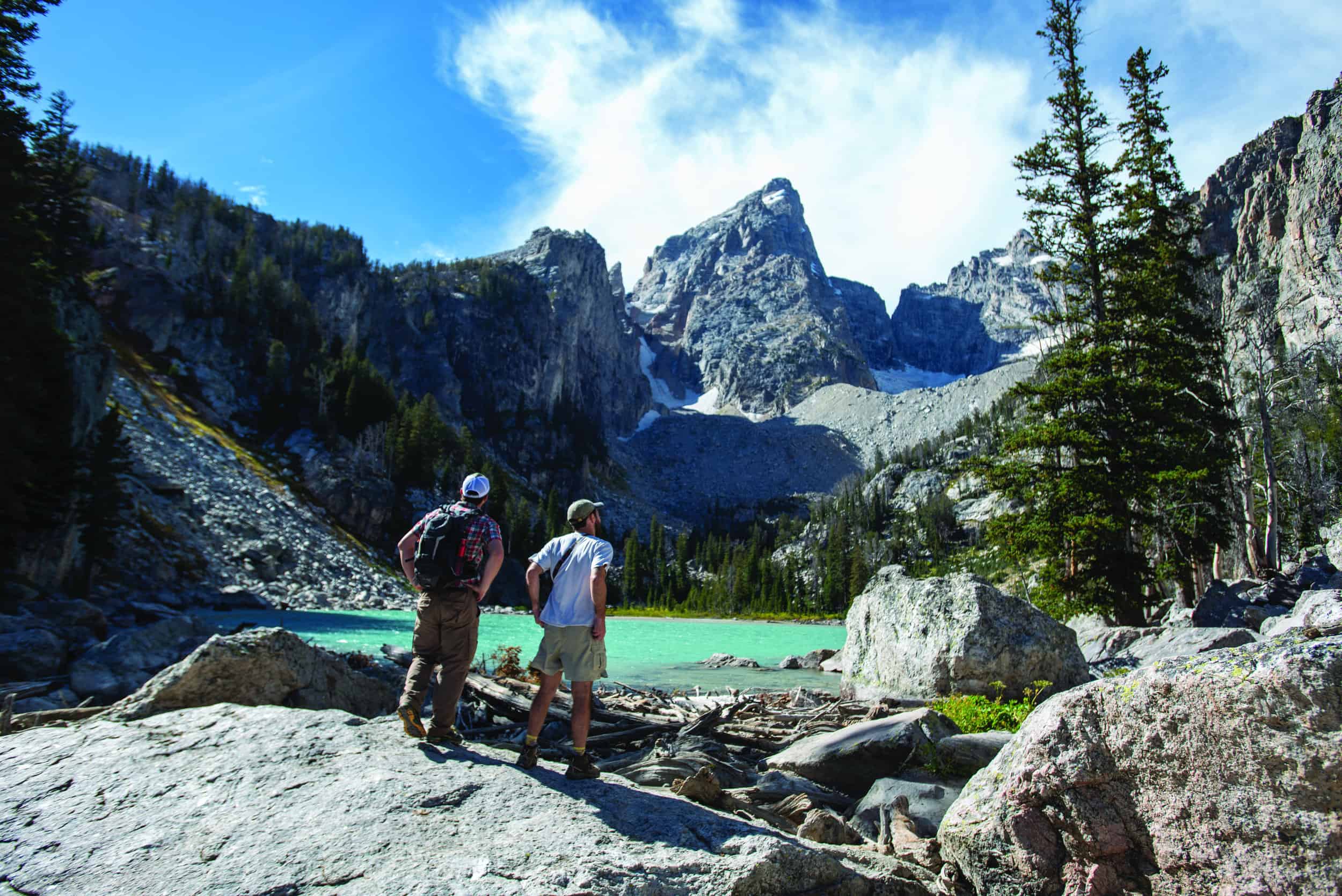Read The
Current Issue
Ode to Joy
Why, and how, you want to experience this emotion.
// By Bevin Wallace // photography By bradly J. Boner
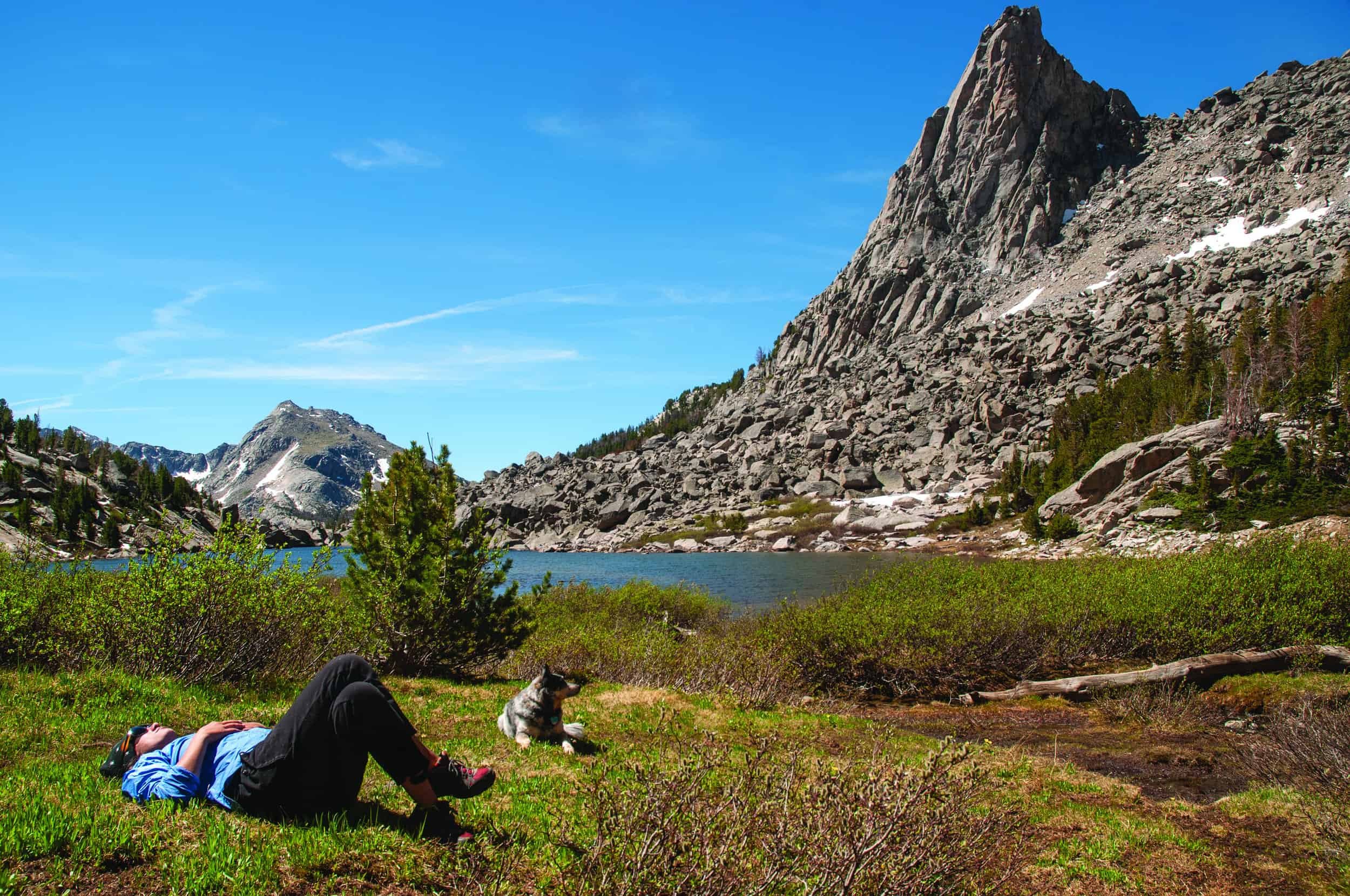
This is going to be a bit meta but here goes. I really struggled to figure out how to start this article about joy. I mean, joy is something we all know exists and we all want, but it’s also kind of a vague concept. Joy is universal and mind-blowing (try listening to Beethoven’s 9th Symphony without feeling … something). It’s the subject of an untold number of poems and of a ubiquitous and lovely Christmas carol (… “and heaven and nature sing”). Joy is even a character in a Pixar movie. But joy is misunderstood—often confused with happiness or pleasure or general good cheer.
What actually is joy? What does joy do for us? And how do we bring more of it into our lives? These are timeless questions that have been pondered by everyone from Desmond Tutu to Steve Winwood. So yeah, intimidated.
Then a couple things happened. First, I went on a mindfulness retreat where the focus was, coincidentally enough, finding joy. And, sitting on the roof of a farmhouse in the middle of nowhere with nothing to do but appreciate nature and focus on being present, I caught a glimpse of it. Since then, and partly because of this assignment, I’ve been studying and talking about the meaning of joy and also actively trying to cultivate it in my everyday life. I’ve learned a lot, and it’s been inspiring and surprising. Not to give away the plot, but joy is crucial to life and available to all of us. We just have to actively seek it out, and slow down enough to notice it. Thankfully, Jackson Hole offers innumerable opportunities to do both of these things.
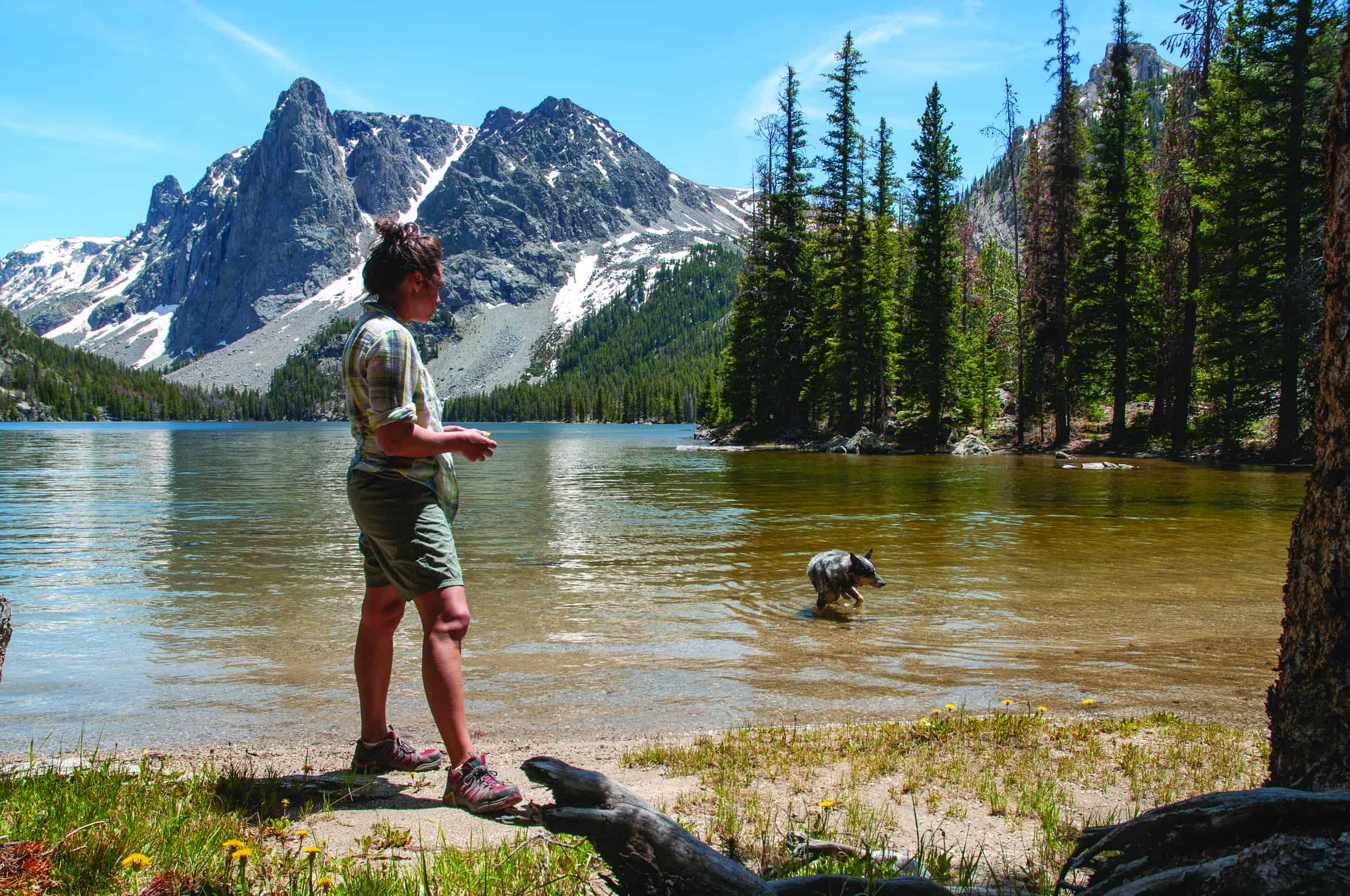
What is joy?
The Oxford dictionary defines joy as, “a feeling of great pleasure and happiness,” but that seems to not really get to the root of the matter. In fact, some would argue that this definition misses the point of joy. In her philosophical essay “Joy,” author Zadie Smith writes, “The thing no one tells you about joy is that it has very little real pleasure in it. And yet if it hadn’t happened at all, at least once, how would we live?” She argues that pleasure comes from things like beach holidays and new dresses, but joy is more about blissfulness and un-self-consciousness. To Terry McGugan, an episcopal priest in Denver, joy is “that inner feeling of peace and serenity and contentment that’s not necessarily contingent upon what’s going on around you.”
Stephani Grace, a therapist and mindfulness teacher in Portland, Oregon, says: “Joy is the natural state of your being; it reminds you of what this life is truly about. We get bogged down by conditioning, and we think we’re supposed to be doing all these things, and joy is like this spontaneous feeling that reminds us of who we are and what’s really true.” Grace believes happiness and joy are very similar. However, she says, “I think joy is more internal. It’s something that you feel in a moment, and happiness is more about things that happened to you that make you happy.” Joy is selfless, whereas happiness is about the pleasure we feel ourself. Joy is associated with the quest for deeper meaning and purpose; you can experience happiness when you win a tennis match or get a good grade. Joy tends to appear after experiencing a sense of awe or wonder.

Joy is also super helpful, especially since suffering is inevitable. “I think of joy as a life preserver; it keeps you buoyant in the face of things that have the potential to drag you down,” says McGugan. “And if you don’t have that buoyancy, that deep center of joy, it’s easy to be pulled underneath the undertow. Life has a way of chipping away at us, and if we don’t have this inner reserve of contentment, harmony, and serenity, which I think are the essence of joy, pretty soon we could be spiraling down into despair, anxiety, and cynicism. Joy helps us build an immunity to the negativity of the world.”
Joy is important because it helps us frame our lives, especially in the face of feelings of scarcity, fear, and anger. “It shifts our perspective,” says McGugan. “By having that center, we’re able to see the beauty, we’re able to see the grace, we’re able to see the positive.”
There are also physical benefits to experiencing joy. A 10-year study conducted by Karina W. Davidson, PhD, of Columbia University Medical Center showed that people with the most negative emotions had the highest risk for heart disease and people who scored highest for happiness had the lowest risk. This comes as no surprise, but happy people tend to sleep better, eat better, smoke less, and get more exercise. More studies are needed, but joy seems to produce positive chemical changes in the body, such as a reduction in stress hormones and a stronger immune system.
It turns out you don’t have to look far to find joy. Joy is a state but it’s also a practice, something we have to work to find in ourselves. It’s transcendent but also available to us—all of us—every day. “It doesn’t matter what you start with, every human has the potential to be blissfully happy,” says Grace.
McGugan agrees that joy is something we choose. “Joy is one of those fruits of the spirit. And either we cultivate those fruits in our lives or we don’t. It’s a conscious choice,” he says. “I would say we have to practice that spiritual discipline, to be a good person, and live a principled life. And I think the essence of cultivating joy in our lives is thankfulness and gratitude.” And, being a priest and a Christian, he believes gratitude works best when it’s directed at a power greater than yourself, whatever that might look like to you. “The more you stop and feel that gratitude, the more joyful you will be,” he says. “Because it nourishes that deep inner joy. And I think subconsciously and consciously it gives us a sense that there’s something bigger than us that is actually not malignant.” Grace agrees: “I would say hands down that gratitude practice will make somebody more joyous,” she says. “Because what you’re doing is focusing on what’s working, on what’s good. And remember, our mind creates our reality.” Or as Father Terry puts it, “Whatever you feed grows.”
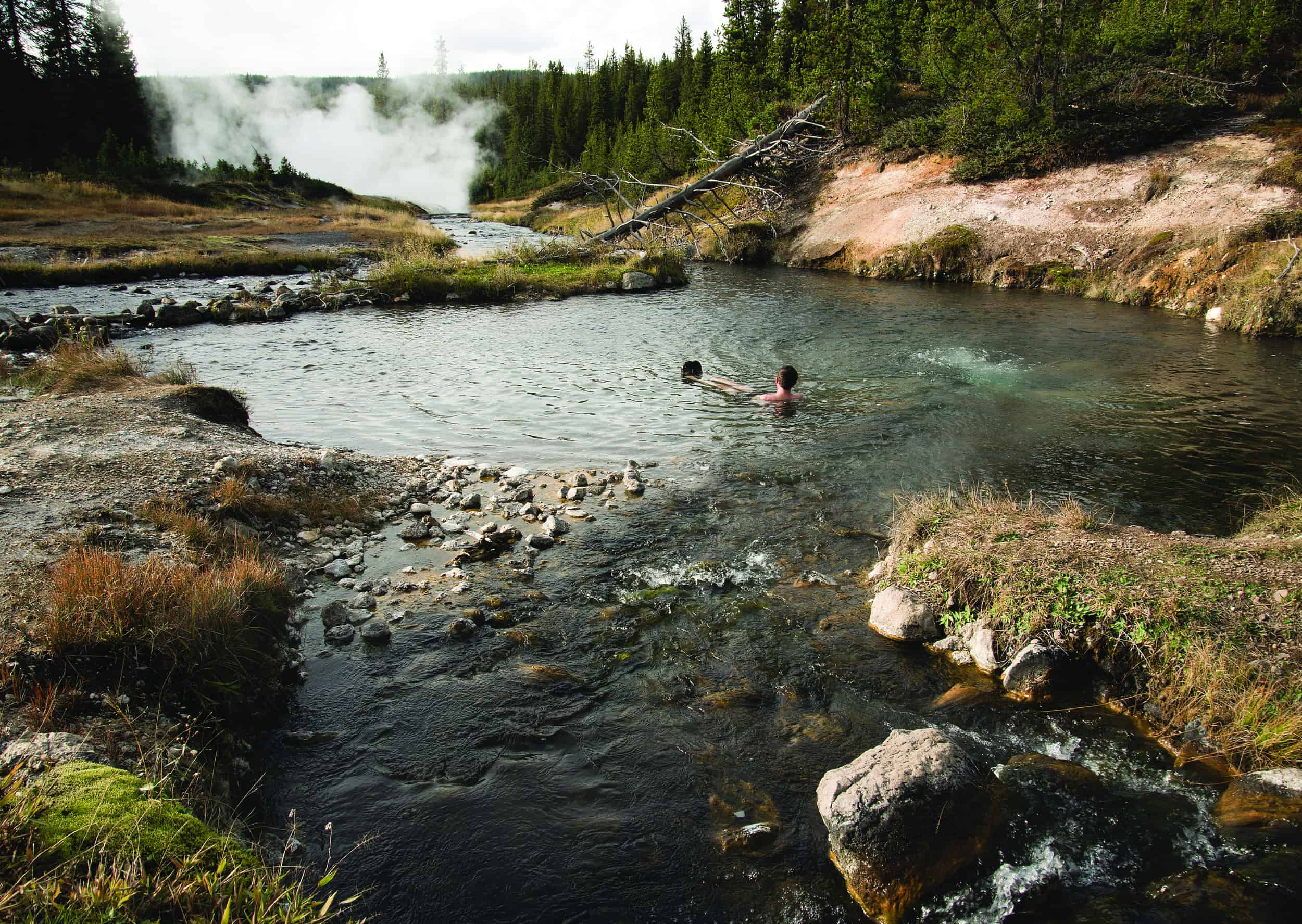
So, in order to find joy, make a habit of actively being grateful. And in order to do that, you need to be present. It’s hard to be grateful for the beauty around you if you’re worried about the future or fretting about the past. Even when things go wrong, really, really wrong, “There’s always some kind of hidden gift. There’s always a way to frame things up,” says McGugan. But you do have to work at it. “I mean, you get diagnosed with stage four lung cancer, you don’t go, thank you Jesus,” he says. “There’s a lot of grief and loss there. But the question is, on that journey, are you growing? Are you growing in self-awareness? Then you can be thankful for whatever you see in that suffering, because there will be something.”
According to the Dalai Lama in The Book of Joy, “Joy is the reward, really, of seeking to give joy to others.” If you are struggling with feeling grateful, try helping out people who have less—money, time, safety, health—than you. It will reframe your perspective on reality, and most likely bring you joy.
As for what specific things, beyond practicing gratitude and giving of yourself, you can do to cultivate joy in your life, both Grace and McGugan say it’s personal to each of us. You have to find what lights you up. Grace suggests making a list of things that bring you joy. She shares that when people do this, they often say things like, “I already have all these moments of joy. I’m just not enjoying them. Maybe I don’t have a lot of time, but I can savor the moments I have.” The work is in the noticing.
So, meditate, pray, walk, journal, sink your fingers into your dog’s fur, sit quietly with your coffee, mow your neighbor’s yard, watch a sunset, hug a hurting friend, have a meaningful and connected conversation with your spouse, snuggle in clean sheets, watch your child sleep, hike in the Tetons, look at a beautiful painting, listen to music that touches your soul, sit on the shore of Jenny Lake—whatever you do, notice and appreciate it. That instant when you’re doing that? That is joy.
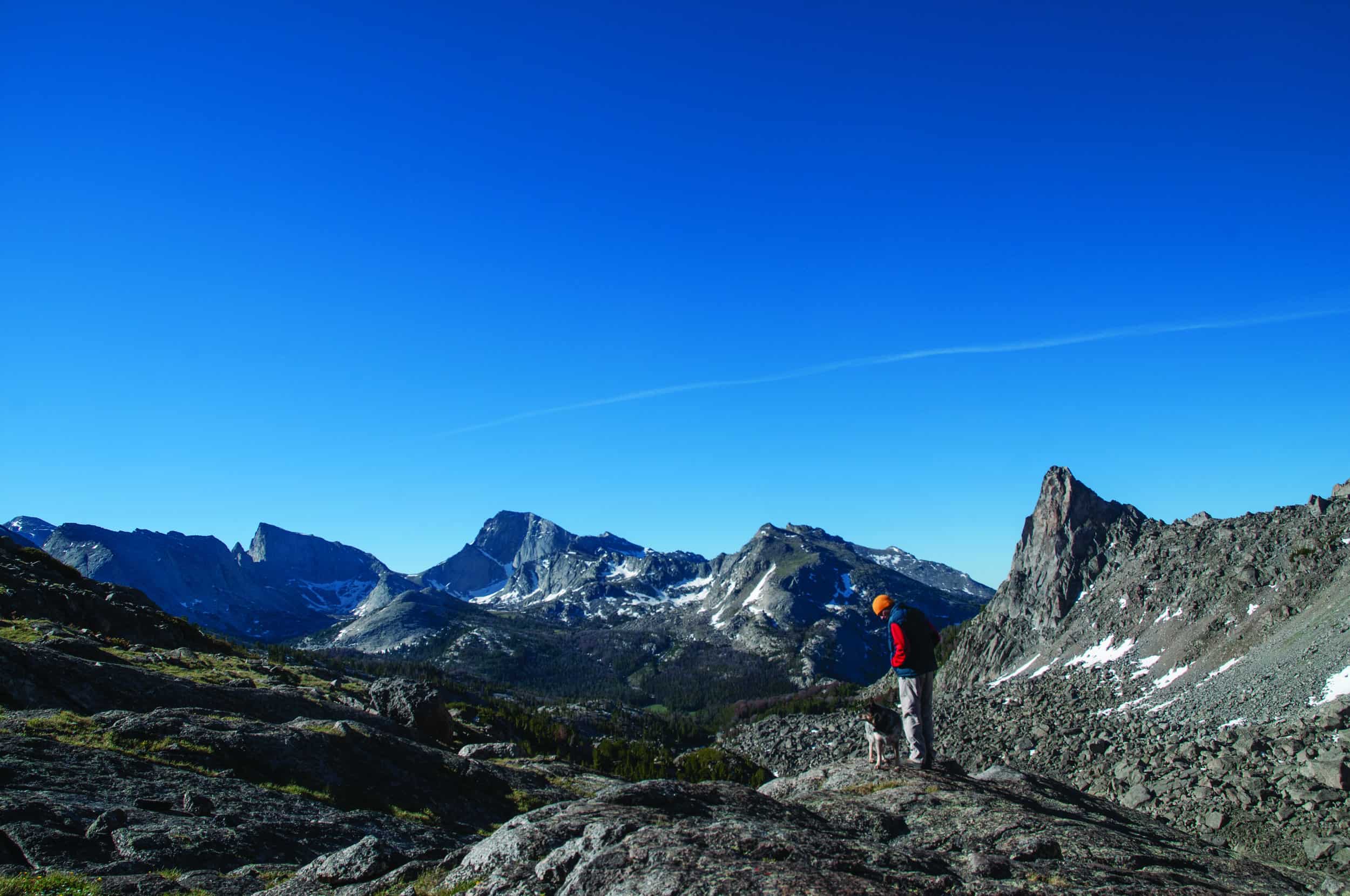
Awe and Wonder
Since joy tends to appear after experiencing awe and wonder, here are a few ideas of things and places to do and see in Jackson Hole that might inspire awe and wonder.
1 The Grand Teton Music Festival has been Jackson Hole’s all-star resident orchestra since its founding in 1962. It stages orchestral and chamber music concerts at Walk Festival Hall in Teton Village and also at outdoor venues around the valley between June 30 and August 19 this year. gtmf.org
2 Only a short walk from where the Jackson Hole Mountain Resort tram deposits you near the 10,450-foot summit of Rendezvous Mountain, Top of the World offers views of at least a dozen different mountain ranges and four states. jacksonhole.com
3 Set against the backdrop of the National Elk Refuge and the Sleeping Indian, the 20-plus sculptures that are part of the National Museum of Wildlife Art’s Sculpture Trail aren’t merely artworks to look at, but to experience; there are even Yoga on the Trail classes (and it’s all free). wildlifeart.org
4 Descriptions of Yellowstone’s landscape by its earliest white explorers were so fantastical—boiling mud and pools, water shooting skyward from the ground, kaleidoscopic hot springs, mineral terraces—they weren’t believed. Today, most elementary school students see photos of the park’s Grand Prismatic Spring and Old Faithful, but there’s still something about seeing these marvels in person. nps.gov/yell/
5 We’ve yet to find a view of the Tetons that doesn’t inspire awe and wonder, but the view of the range from a raft floating the Snake River between Deadman’s Bar and Moose is next level. nps.gov/grte JH

